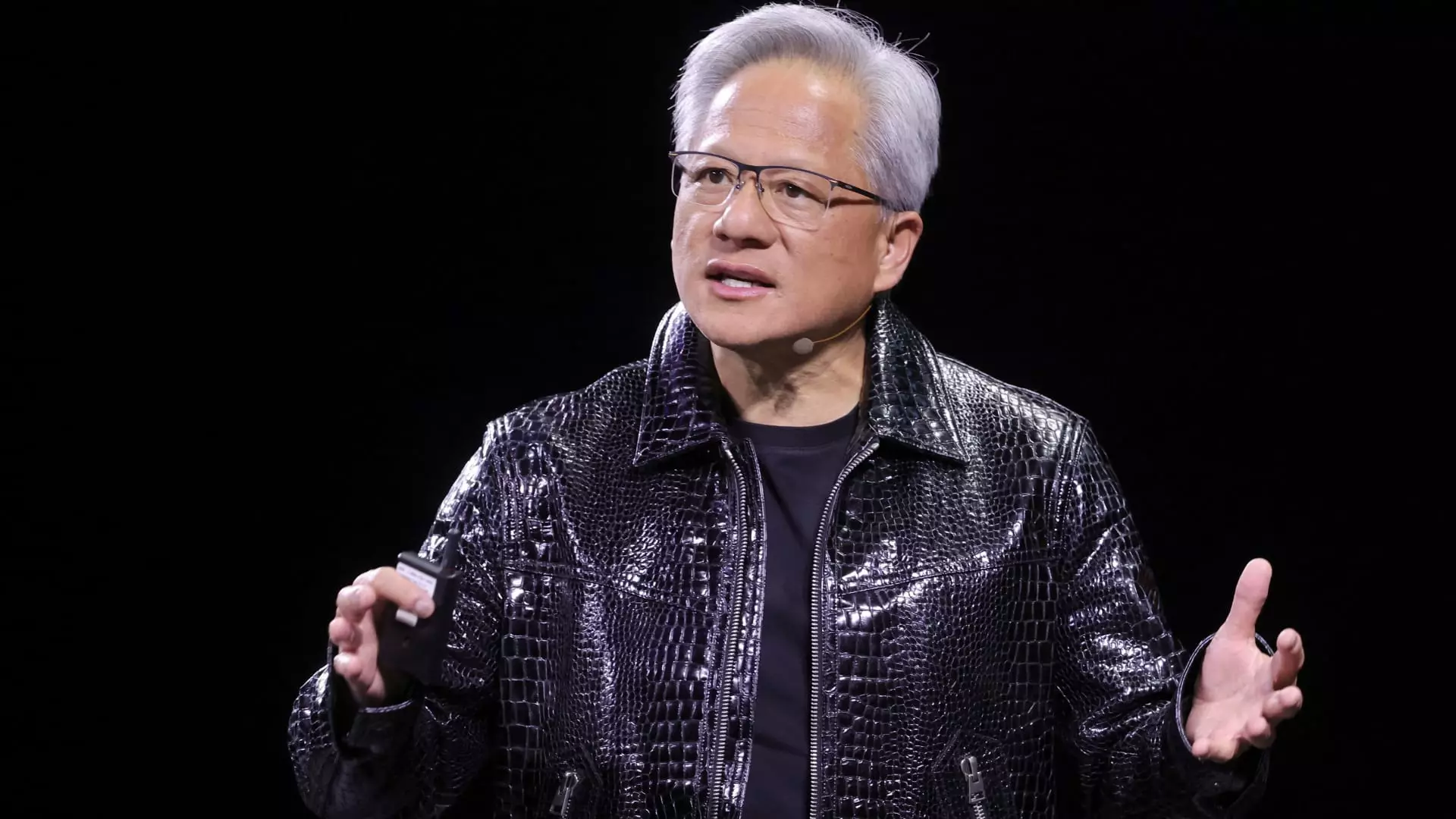In the fast-paced world of technology, the tantalizing prospect of quantum computing has been a siren song for investors and tech enthusiasts alike. Nvidia’s CEO Jensen Huang recently hosted the company’s inaugural “Quantum Day,” an event that many hoped would pave the way for a clearer understanding of the quantum sector’s future. Unfortunately, rather than instilling confidence, it has only served to reveal the troubling dissonance between hype and the harsh realities of technological progress. Huang’s attempt to clarify previous remarks on the long-term viability of quantum computing—and to amend the negative stock reactions that followed—has only deepened the skepticism surrounding this ambitious sector.
The Market’s Response: An Indicator of Doubt
Following Huang’s January predictions that it would take at least 15 years for quantum computing to become commercially viable, investors reacted irrationally, selling off major quantum stocks. The fallout from these comments didn’t dissipate with the dawn of Quantum Day; in fact, the situation has worsened. Stocks from companies including D-Wave and Rigetti witnessed substantial declines after the event—D-Wave plummeting 18%, while IonQ also suffered losses nearing 9%. This dramatic market response indicates that the financial sector remains unconvinced of Huang’s optimistic overtures about quantum computing’s transformative potential.
As Huang laid out the potential of quantum computing at Quantum Day, he also attempted to articulate a new marketing strategy for this emergent technology. However, his suggestion that quantum should be branded as a complementary tool rather than a revolutionary stand-alone platform struck a discordant note. Such a repositioning raises questions about the legitimacy of quantum endeavors and their capability to notably advance the tech industry. If quantum computing is just another “tool” rather than a paradigm shift, can it really live up to the soaring expectations that have been set?
Rethinking Expectations: Where’s the Value?
The essence of Huang’s discourse revolved around recalibrating public perception concerning quantum computing’s timeline. Both he and Needham analyst Quinn Bolton expressed concerns that misnaming quantum systems as “computers” could create unrealistic expectations for investors and consumers alike. This commentary also hints at a more significant, unsettling possibility: that the trajectory of quantum advancement may not chart the swift course many investors anticipated.
In a climate where consumer and investor confidence is paramount, Huang’s foot-in-mouth moments—unfolding on the global stage—could bear lasting repercussions. Instead of fostering optimism and energy for quantum goals, the event painted an unsettling picture of an industry still grappling with fundamental issues surrounding its viability. As Huang confessed to being caught off-guard by the market’s emotional response, one must wonder if anyone truly grasps the monumental challenges that still beset the quantum computing frontier.
Who’s Really Benefiting? Nvidia’s Strategic Play
Nvidia’s involvement in quantum research raises potential conflicts between their ambitions and the genuine progress of quantum computing as a standalone entity. Huang, while vocal about quantum’s future, paradoxically positions Nvidia as the intermediary benefactor—capitalizing on quantum via their GPUs as research vehicles instead of championing the independent development of quantum technology. The prospect of Nvidia’s new Boston research center—established to facilitate collaboration between quantum startups and premier academic institutions—offers a glimmer of hope but also reinforces suspicions regarding their primary motivation.
By aligning themselves closely with quantum firms and educational establishments, Nvidia appears to be fortifying its own market dominance rather than becoming a genuine advocate for the quantum cause. This raises eyebrows about the sincerity of Huang’s endorsements of the quantum sector when it seems that Nvidia’s interest may be more in enhancing its bottom line than in ensuring a successful quantum future for the industry at large.
An Uncertain Future: Trust Eroded
The skepticism surrounding Nvidia’s Quantum Day and Huang’s simultaneous reassurances highlights a broader issue—the fragility of trust when it comes to revolutionary technologies. Investors armed with knowledge of tech history know well that the path from lofty expectations to tangible results is fraught with pitfalls and delays. Miscalculations, such as the one emanating from Huang’s prior remarks, only serve to reinforce a culture of doubt and hesitation within this burgeoning industry.
As the Quantum Defiance ETF continues to face declines—now down more than 4% this year—the notion of quantum computing etching its place in the annals of technological history appears increasingly precarious. Huang’s well-meaning address may attempt to soothe anxieties, but the underlying tensions and contradictions in the quantum landscape demand more than simple reassurances. They call for a candid recognition of the complex realities that accompany any groundbreaking technological leap.


Leave a Reply